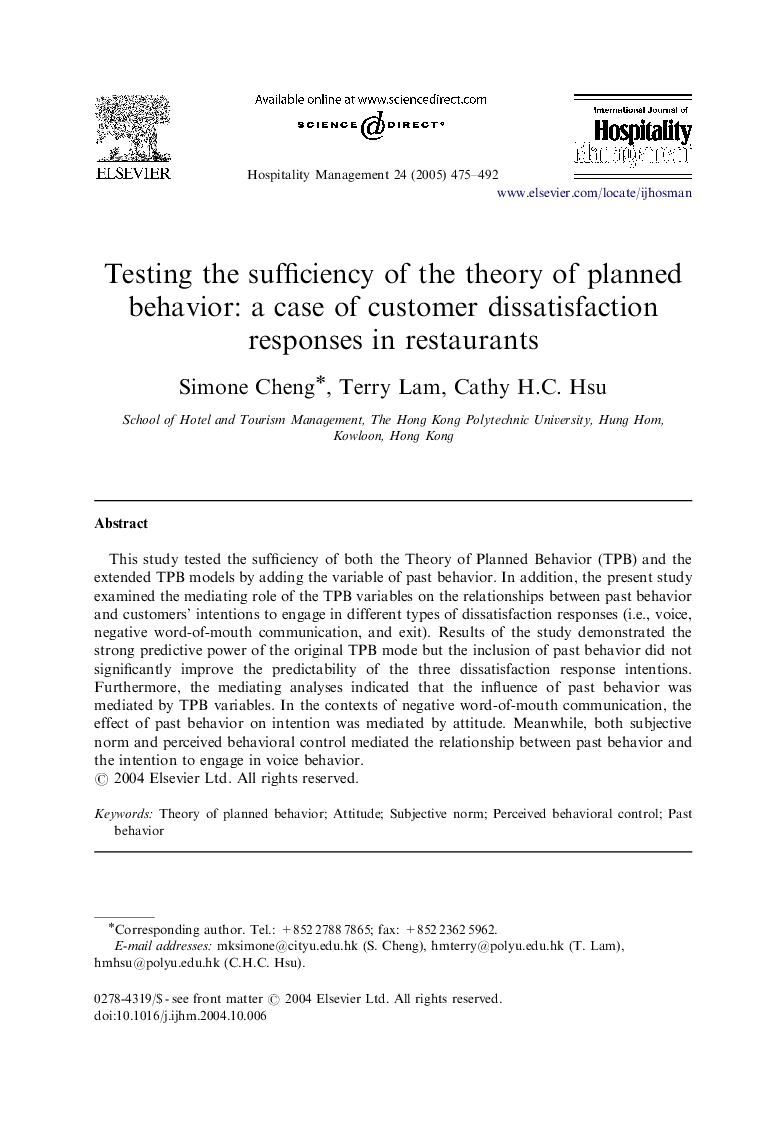| Article ID | Journal | Published Year | Pages | File Type |
|---|---|---|---|---|
| 9734293 | International Journal of Hospitality Management | 2005 | 18 Pages |
Abstract
This study tested the sufficiency of both the Theory of Planned Behavior (TPB) and the extended TPB models by adding the variable of past behavior. In addition, the present study examined the mediating role of the TPB variables on the relationships between past behavior and customers' intentions to engage in different types of dissatisfaction responses (i.e., voice, negative word-of-mouth communication, and exit). Results of the study demonstrated the strong predictive power of the original TPB mode but the inclusion of past behavior did not significantly improve the predictability of the three dissatisfaction response intentions. Furthermore, the mediating analyses indicated that the influence of past behavior was mediated by TPB variables. In the contexts of negative word-of-mouth communication, the effect of past behavior on intention was mediated by attitude. Meanwhile, both subjective norm and perceived behavioral control mediated the relationship between past behavior and the intention to engage in voice behavior.
Related Topics
Social Sciences and Humanities
Business, Management and Accounting
Strategy and Management
Authors
Simone Cheng, Terry Lam, Cathy H.C. Hsu,
